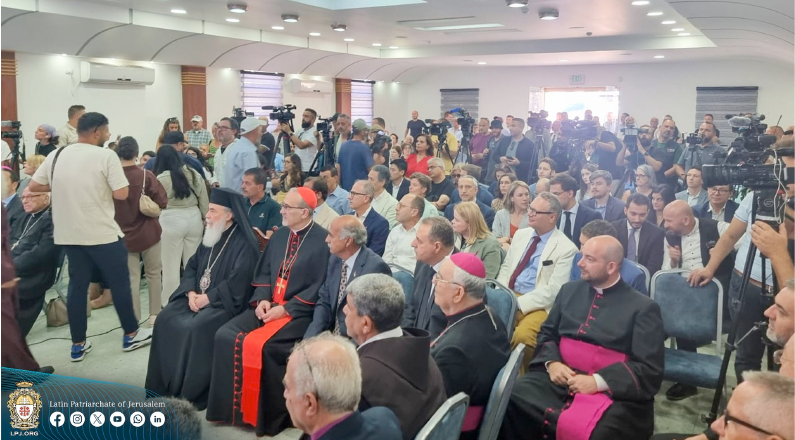“There Is No Future for You Here”: Why Cretio’s Quest Is a Lifeline for Christians in the Holy Land
- tonytangebirah
- Jul 27, 2025
- 3 min read

It was still early when 17-year-old Elias left his home in Bethlehem to head to his uncle’s workshop. But halfway down the street, a group of settlers blocked his path and shouted in Hebrew: “Leave now. You are not wanted.” That chilling sentence has become an everyday refrain for many young Palestinian Christians in the Holy Land.
What was once a land of hope, sacred to three major religions, is now witnessing the silent erasure of its Christian communities—through harassment, economic marginalization, and an alarming lack of opportunity.
This is not a rare story. In a recent Zenit News report (15 July 2025), Christian leaders in the Holy Land sounded the alarm: churches desecrated, clergy spat upon, and Christian youth targeted by extremist settlers. Christians in the Holy Land are facing a new wave of harassment and violence, primarily from extremist settlers. “What we are seeing is a form of religious intimidation,” said Latin Patriarch Pierbattista Pizzaballa.

Despite the rich history of Christianity in the land of Jesus, many local Christians now ask: “Do we still belong here?”
A Quiet Exodus Amid Loud Tensions
Christians make up less than 1.8% of the population in Israel and Palestine today, a steep decline from over 10% a century ago. Many are leaving — not because of lack of faith, but because of lack of opportunities, economic insecurity, and threats to their safety.
The recent increase in settler violence—including shouting slurs at pilgrims—has been called “a form of terrorism” by local bishops. As reported by ZENIT, young Christians are being told, sometimes face-to-face, that “there is no future for you here.”
It’s in this context that Cretio’s Quest program, in partnership with Gebirah, a humanitarian organization from Singapore, emerges as a vital countermeasure — offering more than just charity. It offers a future, a beacon of hope.
Why Quest Matters Now More Than Ever
The Quest program is not just another volunteer initiative. It’s a strategic empowerment model that equips young Christians in the Holy Land with vocational skills, digital tools, mentorship, and access to global markets and social enterprise opportunities. These are not handouts — they are lifelines.
Quest matches Catholic professionals and mentors from around the world with Christian youth and entrepreneurs in Bethlehem, Nazareth, and Jerusalem. By doing so, the program enables locals to build sustainable livelihoods where they are, instead of migrating somewhere else.

This is important, especially considering:
Over 34% of Christian youth in the West Bank are unemployed (source: Kairos Palestine 2024 Youth Report).
Only 1 in 5 Christian-owned businesses in the Holy Land have access to reliable international partnerships (source: Bethlehem University Entrepreneurship Centre, 2023).
Programs like Quest directly address these challenges by providing pathways to stability, dignity, and purpose.
Gebirah’s Role and Proven Track Record
As a partner of Cretio, Gebirah brings deep experience in deploying effective, sustainable aid missions. In the past, Gebirah has organized missions to the Holy Land, delivering essential aid to communities affected by the Gaza conflict, including Christian families displaced or harmed by the war.
Beyond the Holy Land, Gebirah continues to serve in high-need areas. Two impending missions already in the pipeline are:
These missions demonstrate Gebirah’s commitment to solidarity, sustainability, and spiritual service — a model we also bring to the Holy Land through our collaboration with Quest.
A Quiet Revolution Begins with Us

There’s a reason local bishops are calling on international partners to help. “We need not just charity, but solidarity,” says Archbishop Pierbattista Pizzaballa. “If the Christian presence disappears, the Holy Land becomes a museum.”
Quest is not a silver bullet. But it is a powerful, proven response to a crisis that is both spiritual and systemic.
Through partnership, mentoring, and mission, we can help Christians in the Holy Land reclaim their future — with dignity, hope, and purpose.
If you believe in protecting the Christian presence in the birthplace of our faith, we invite you to walk with us.
We are looking for partners, collaborators, and volunteers who may be interested to support us in making this solution available to the brothers and sisters in Holy Land.






Comments